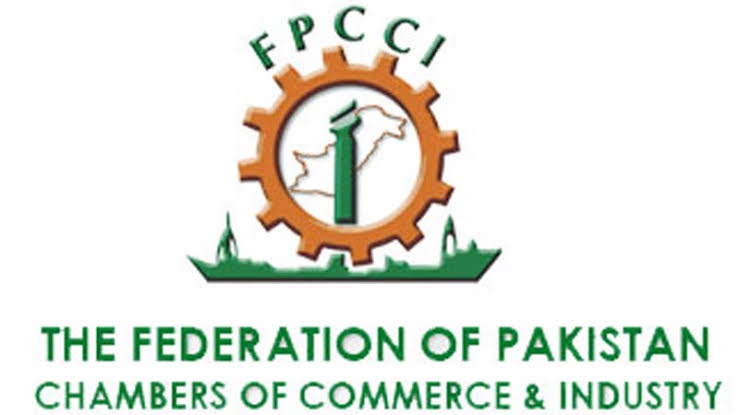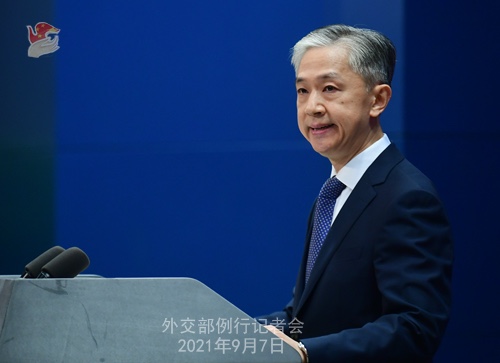President of Federation of Pakistan Chambers of Commerce and Industry (FPCCI), Mian Anjum Nisar has said that Pakistan can deepen its cooperation with Afghanistan for the benefit of CPEC. He said that this will help landlocked Afghanistan as well by providing enhanced access for trade and connectivity. He also mentioned how despite the regional security situation, Pakistan was able to supply imported fertiliser to Afghanistan through Gwadar Port. He also pointed out how Pakistan can take part in Afghanistan’s reconstruction while at the same time using it as a route to Central Asian Republics
LAHORE – At a time when the economy desperately needs a push for growth Pakistan can capitalise the present situation by increasing the scale and depth of economic engagement with Afghanistan.
Our economy is at the crossroads in the wake of a dramatic drop scene of the US-led war in Afghanistan with the return of Taliban back to power but in this crisis Pak-Afghan trade can be multiplied manifold if the irritants are removed and the traders are facilitated, said Mian Anjum Nisar, FPCCI former president.
The Federation of Pakistan Chambers of Commerce and Industry’s Businessmen Panel Chairman observed that a peaceful Afghanistan and development of friendly diplomatic ties will encourage Pakistan and its major ally China to facilitate the landlocked nation in international trade through Gwadar Port and provide enhanced access under the China-Pakistan Economic Corridor (CPEC). Provision of services through Gwadar Port will open a new revenue stream for Pakistan and China as well. Pakistan has continued to supply imported fertiliser to Afghanistan through Gwadar Port, despite the recent change in the political setup there.
Mian Anjum Nisar said that the BMP wishes for lasting peace in the neighboring country as Taliban leaders scramble for legitimacy in the wake of the bloodless takeover on August 15. Afghanistan’s economy has shrunk 1.9% in 2020. The country has the second-lowest per capita income in the region. Things are in flux and there is every chance for the situation to deteriorate further as the aid flow might get disrupted. After all, 80% of Afghanistan’s budget is financed by aid. It would serve us better if we lie low and do our homework to deal with all possible scenarios in Afghanistan, , as the logistic facilities, including sufficient weighing bridges and swift custom clearance, can shorten the travelling time, reduce the wastages, and increase overall trade to the benefit of the countries and their peoples, he added.
The BMP chairman said that Pakistan’s construction companies could be part of the reconstruction process in a war-ravaged country, realizing that the trade ambitions of the landlocked Central Asian Republics using the Afghan corridor, and rake in dividends as Kabul unlocks its mineral wealth probably with Chinese help.
He said that any durable peace and rapid economic development in Afghanistan will create a positive outlook for the region where Pakistan, China, Russia and Iran may take the lead in reconstructing the war-torn economy as well as the infrastructure. Mian Anjum Nisar observed that long-lasting peace and economic development in Afghanistan will prove positive for Pakistan and its economic activities and now, much depends on the Taliban leadership in Kabul as to how they deal with the situation. Besides, Pakistan can expand economic ties with Afghanistan by providing more goods under the decades-old transit trade agreement through the two ports in Karachi. This way it will be able to step up exports of a number of goods and play a role in the reconstruction work.
Afghanistan will need almost everything for development and much will depend on Pakistan as to how it markets its products and services in the neighboring country.
Pakistan’s economy is already encountering challenges as it is implementing an action plan to get out of Financial Action Task Force’s (FATF) grey list and is struggling to resume the International Monetary Fund’s $6 billion loan program.
Pakistani rupee may also come under pressure in case the Taliban government does not get access to Afghanistan’s foreign exchange reserves, which are mostly parked in US banks or invested there.
This situation may encourage smugglers to supply US dollars illegally to traders in Afghanistan from Pakistan, where the current account deficit already stands high due to excessive foreign expenditures compared to its income.
The swift takeover of Afghanistan by the Taliban in the wake of the US-backed Ashraf Ghani regime in Kabul is causing concern not only about the war-ravaged country’s future but also about its potential implications for Pakistan’s economy.
“We are quite optimistic about the situation once the present transition period is over and stability returns to Afghanistan, we will be able to significantly increase exports to Afghanistan besides accessing the Central Asian markets.”

















